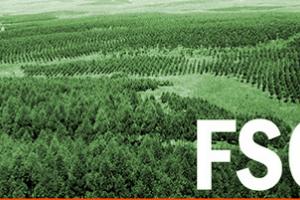Press Release - September 1, 2006
Brazil
1 September 2006
Other information
1 August 2006
The case of Veracel Celulose is useful – as are so many others – in revealing the falseness of business discourse on “sustainability.” Veracel is a modern company, owned in equal parts by the Swedish-Finnish Stora Enso and the Norwegian-Brazilian Aracruz Celulose. Veracel is the owner of 164.000 hectares of land, 78,000 of which have been planted with eucalyptus trees in the State of Bahia, where last year its gigantic pulp mill started operating, with an annual production of 900,000 tons of pulp for export.
Other information
2 July 2006
The Alert against the Green Desert Movement is a broad network of opposition to the expansion of large scale eucalyptus tree plantations in the region which covers the States of Minas Gerais, Espirito Santo, Bahia and Rio de Janeiro and Rio Grande do Sul. Its existence and struggles arose from the proven social and environmental impacts of these plantations, some of which presently enjoy FSC certification.
Bulletin articles
2 July 2006
On June 1st, 2006, the Seminar on “The Rights of Indigenous Peoples and the Advance of Agribusiness: issues and challenges” took place in the town of Vitória, Espírito Santo, Brazil. The Seminar gathered the Tupinikim and Guarani communities and also other communities affected by large-scale monoculture tree plantations, in addition to various sectors of civil society in the State of Espirito Santo, for a thorough reflection on the subject.
Other information
8 June 2006
By the Alert Against The Green Desert Movement/Brazil
The harshness of capital against life but Aracruz Celulose lost the FSC-certificate!
Other information
5 June 2006
Paulo Henrique de Oliveira, a Tupinikim leader of Caieiras Velhas and Coordinator of the Articulação de Povos e Organizações Indígenas do Nordeste, Minas Gerais e Espírito Santo - APOINME (Articulation of Indigenous People and Organizations from the Northeast, Minas Gerais and Espírito Santo), and Antônio Carvalho, a Guarani chief, travelled to Europe in April/May 2006, to publicise their struggle to demarcate Tupinikim and Guarani lands in Espírito Santo (see WRM Bulletins Nº 94, 96, 102, 103) .
Other information
5 June 2006
The social and environmental impacts of monoculture eucalyptus plantations have been well documented in many countries. However, the gender dimension has usually been overlooked, thus hiding the differentiated impacts they have on women. The following quotes from a research carried out in Brazil on Aracruz Cellulose’ plantations and pulp mill operation are therefore very useful to shed some light on the issue and to encourage other people to look further into these less well-known impacts.
Bulletin articles
6 May 2006
In 2003, Brazil's Aracruz Cellulose paid Klabin US$610 million to buy its Riocell pulp operations in Rio Grande do Sul. Along with a 400,000 tonnes a year pulp mill and 40,000 hectares of eucalyptus plantations came a certificate from the Forest Stewardship Council (FSC), saying that the plantations were well managed.
Other information
14 April 2006
Only available in Portuguese -
Introdução
O FSC-Brasil tomou a iniciativa para organizar um encontro em Belo Horizonte no dia 18 de outubro de 2005 com o objetivo de coletar contribuições para o processo global de revisão dos princípios e critérios de certificação para plantações de árvores pelo FSC.
Bulletin articles
7 April 2006
According to Recommendation no. 01 of 18 November 2005, the Federal Public Ministry, through the Attorney of the Republic in Ilheus-Bahia, is demanding the removal of eucalyptus plantations in a radius of 10 (ten) kilometres in the buffer zones of the Conservation Units of the Do Descubrimento, Monte Pascoal and Pau Brasil National Parks, as determined by Brazilian legislation.
Other information
7 March 2006
International Women’s Day had an unusual celebration in Brazil. At dawn on 8 March, close on 2 thousand women farmers linked to the Via Campesina organization took lightening action at the facilities of the Aracruz Celulose pulp mill company in the Municipality of Barra do Ribeiro near Porto Alegre. The Barba Negra establishment is the main production unit for eucalyptus and pine seedlings to supply their Guaiba factory. It even has a laboratory for cloning seedlings.
Bulletin articles
8 February 2006
In November 2005, hundreds of quilombolas marched through the streets of São Mateus in northern Espírito Santo to protest against Aracruz Celulose, the world's largest producer of bleached eucalyptus pulp. "Aracruz Celulose: you are against the life, return our lands to produce food", "Workers Mutilated by Aracruz Celulose demand their Rights", "President Lula: The future of indigenous people is more important than exporting pulp!" read some of the banners. I took part in the march and walked with the quilombolas, to the sound of drumming, through the town.



